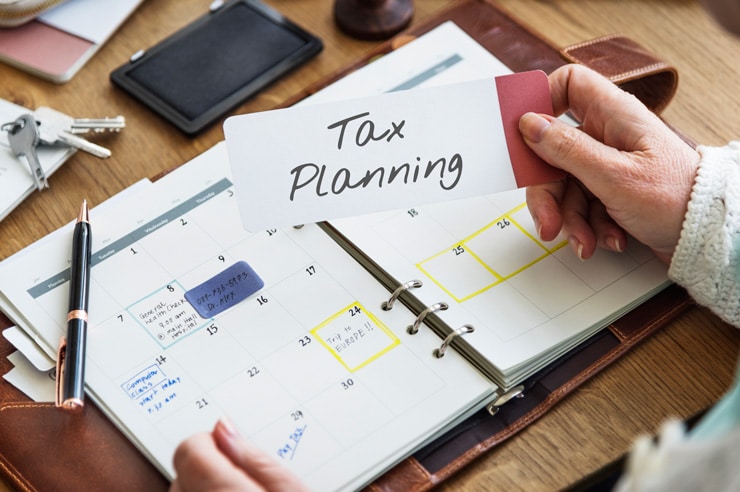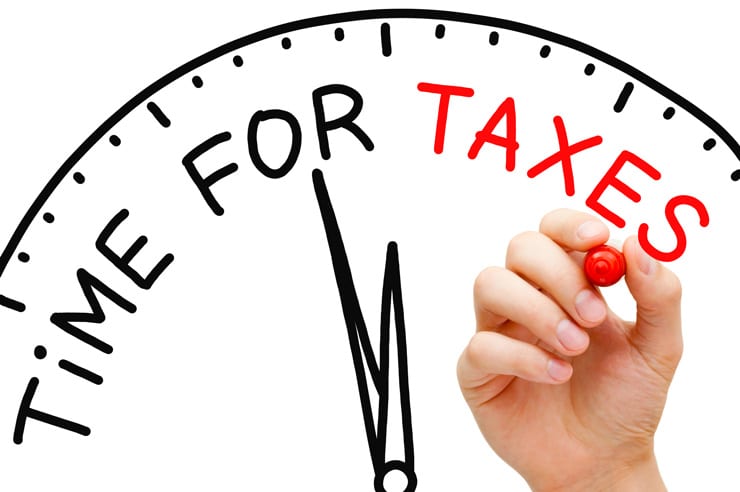Personal Tax Planning – Checklist for Tax Year End
12/03/2022 - 8 minutes readPersonal tax planning should be at the top of your agenda this month as there is less than a month to go until the end of the tax year.
With inflation nearing record levels, any money held in cash is not keeping pace with inflation, so its spending power is being eaten away.
Here’s a personal tax planning checklist for you to work through as we approach tax year-end.

Personal Tax Planning – Checklist for Tax Year End
Use your annual allowances for ISA & Pension
Everyone over the age of 16 can save £20,000 each year in a cash ISA and anyone over the age of 18 can save the same amount in a Stocks and Shares ISA. Those aged 18 to 39 can open a Lifetime ISA and save up to £4,000 each year.
The crucial thing with ISAs is if you do not use all the allowance it cannot be carried forward to future tax years, so you lose it for good. As part of the personal tax planning for year end, investors with spare money they plan to save and any unused ISA allowance for this year should consider using it before the 5 April deadline.
See further details here.
The pension annual allowance for this tax year is £40,000 or 100% of earnings if that is lower – this includes both contributions made by you and your employer. The annual allowance can be carried forward for up to three years, so investors should consider whether they have made as much use of their pension annual allowance as possible ahead of the end of the tax year.
Caution – This personal tax planning tip has 2 exceptions: anyone with a very high income or who has already started to take taxable income from their pension will have a restricted annual pension limit.
If you want to carry forward any previously unused pension allowance, you will only get tax relief on personal contributions up to 100% of your earnings for that year. People with no earnings (including children) can still save up to £3,600 a year in a pension (including basic rate tax relief).
See further details here.
For personal tax planning, whether it’s your pension, your Lifetime ISA or ensuring you claim tax breaks that you are eligible for, it’s important to get as much free government cash as you are entitled to.
Pensions benefit from tax relief at 20% for basic rate taxpayers, but higher and additional rate payers can reclaim an additional 20% or 25% tax relief respectively through their tax return. That means for a basic rate taxpayer every £1 in your pension only costs you 80p and for a higher rate taxpayer every £1 in your pension only costs you 60p.
Anyone using a Lifetime ISA can also get up to £1,000 of free money from the government each year, if you put in the maximum £4,000 contribution, bearing in mind that the age limit to open a Lifetime ISA is 39 years.
Just be aware that you can withdraw Lifetime ISA money once you’ve reached age 60 or earlier to buy your first property, but if you take the money out for any other reason (apart from severe ill health) there is an exit penalty of 25%.
It is also worth checking that you are claiming any government tax breaks that you are eligible for, such as the marriage allowance or tax-free childcare, which gives a 20% top-up to money you use for childcare.
Watch out for the high-income child benefit tax charge
You will start to lose the child benefit when one half of the couple earns more than £50,000 – and the benefit will be wiped out entirely when they hit £60,000. The frustrating factor for many parents is that the rule applies if one parent is earning more than £50,000, regardless of their partner’s income. So, you could have both parents earning £48,000 each and have no problem, but if one earns nothing and the other earns £60,000 you’ll lose the benefit.
A parent with two children will get £1,828 a year in child benefit, but for every £1,000 they earn over £50,000 they will lose 10% of their child benefit – so someone earning £51,000 will lose £183.
See further details here.
However, as part of personal tax planning for year end, parents who have just tipped over the threshold can get around this by increasing their pension contributions. What’s counted for the purposes of the child benefit high-income charge is your salary after any pension deductions. This means if you contribute enough to your pension to get your salary back to £49,999 then you’ll get the full child benefit again.
Another option is to make charitable donations from any income over the £50,000 limit, which you’ll need to declare to HMRC on your tax return.

Check your expected annual income to ensure you won’t lose your tax-free personal allowance
The tax-free personal allowance for most people is currently £12,570. When your taxable income reaches £100,000, your personal allowance is cut by £1 for every £2 of your income, which means you lose it completely once your income reaches £125,140.
For example, someone who gets a pay rise from £100,000 to £110,000 will lose £5,000 of their personal allowance. They will be taxed at the normal 40% income tax on their pay rise, amounting to £4,000, and then taxed at 40% on their lost personal allowance, amounting to £2,000. This means they pay £6,000 on the £10,000 pay rise – an effective tax rate of 60%.
If you are in this position then as part of your personal tax planning strategy, you could consider reducing your taxable income so that it falls below the £100,000 level where the personal allowance starts to be eroded. There are two ways you can do this: by making charity donations or contributing to a pension.
By contributing to a pension, you are making tax savings in the form of getting your personal allowance back whilst also saving for your future and benefiting from pension tax relief at 40%, so you wipe out the 60% effective tax rate completely.
How can MCL Accountants help?
Contact MCL Accountants on 01702 593 029 to discuss these personal tax planning tips in detail or if you need any assistance with the preparation and submission of your business accounts or self-assessment tax returns to HMRC.
- ABOUT
- REQUEST A QUOTE
Ishan provides financial management, taxation and transactional advice to business entities of all sizes. His expert areas include statutory compliance, business taxation, personal tax & transactional processing and systems. Industry sectors include professional services, retail, hospitality and entertaining & media and advertising services.

0 Comments